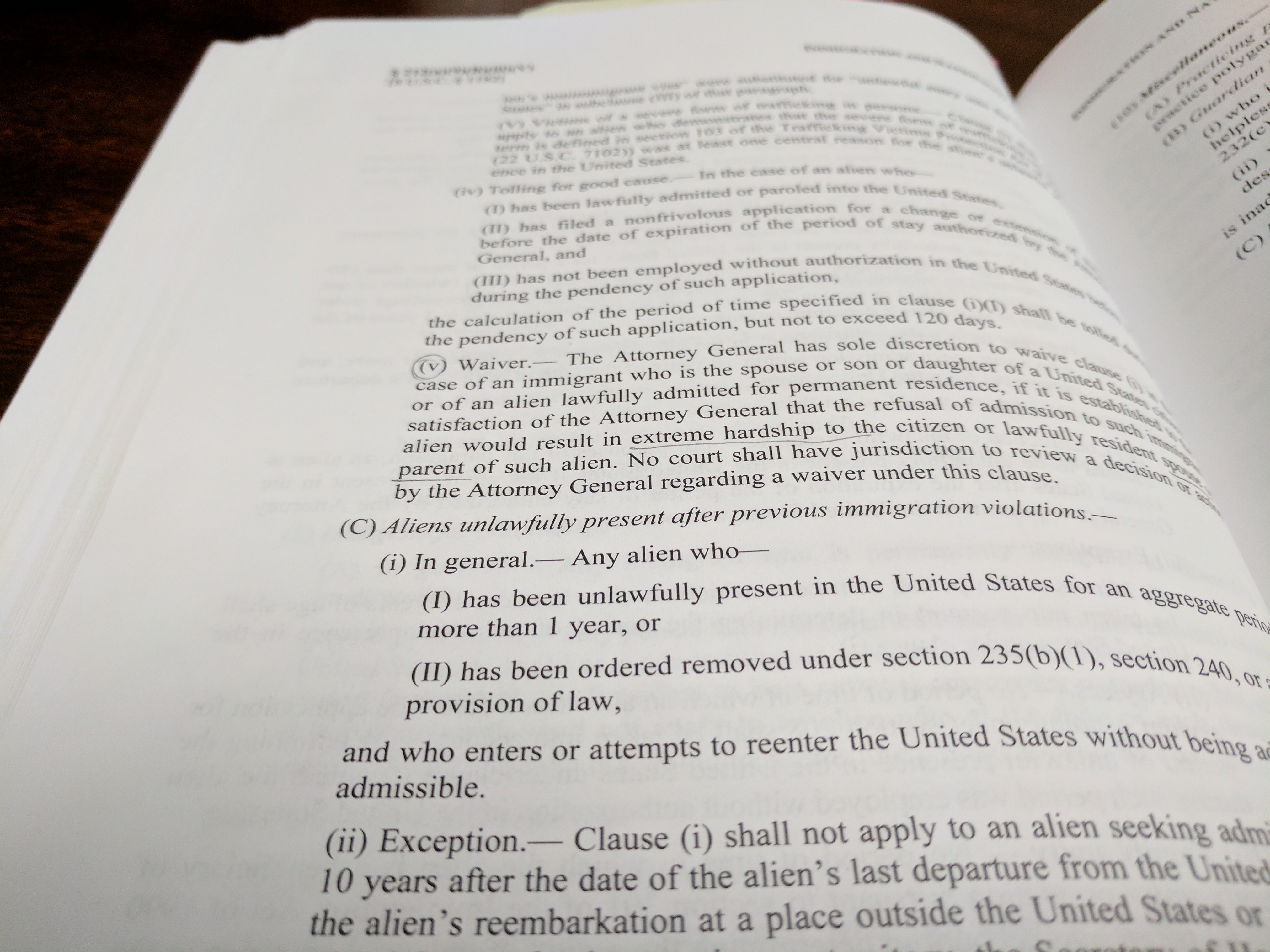What is Unlawful Presence?
Many immigrants come to the United States by illegally crossing the border. Others are issued visas and overstay in the U.S. past their authorized date. These situations can lead to accrual of unlawful presence in the United States. Unlawful presence can come with serious consequences, so it is important to understand what unlawful presence is and how to avoid it.
Unlawful presence can accrue to an individual if he or she remains in the United States after the expiration of a period of authorized stay, or if he or she is present in the United States without being admitted or paroled. This is a very general statement, and “unlawful presence” is a term of art that is complicated and needs careful scrutiny. For example, there are many exceptions to accruing unlawful presence, such as an asylum applicant, deferred action, certain non-immigrant visas, and minors. It is best to check with your attorney to determine if you have accrued unlawful presence.
The Bars
U.S. immigration laws provide for a certain “bar,” depending on how much unlawful presence an individual has accrued before they left the country, and whether they have reentered afterwards.
A “bar” prevents the individual from obtaining certain U.S. immigration benefits, including visas and adjustments of status. The period of time that the immigrant is not eligible for immigration benefits depends on how much unlawful presence they have accrued, and they must usually wait outside of the country, usually in their home country, until the bar time passes. Of course, there are exceptions to this, too, depending on what type of bar, and how and when you reentered.
The current law applies to unlawful presence after April 1, 1997. Below are the three most common “bars” relating to unlawful presence.
The Three-Year Bar
If the individual has been present in the United States for 180 days, but less than one year, they will trigger the three-year bar upon leaving the U.S. The unlawful presence must be continuous and uninterrupted.
For example, if the individual crosses the border illegally into the U.S., stays a month, and goes back, then re-enters the U.S. illegally again for 179 days, and exits back to their home country, he or she is not subject to the three-year bar, or any other bar.
There is a waiver available for this bar, if you qualify.
The Ten-Year Bar
If the individual has been present in the United States for one year or more, they will receive the ten-year bar. Similar to the three-year bar, the unlawful presence must be continuous and uninterrupted.
There is also a waiver available for this bar, if you qualify.
The [Dreaded] Permanent Bar
This bar applies to individuals who accrue one year or more of unlawful presence, and then re-enter or attempt to re-enter the country illegally. Unlike the other two bars, the unlawful presence does not have to continuous. The total number of days present in the U.S. unlawfully is counted.
Likewise, the permanent bar is applied to individuals who are ordered removed from the United States, and then re-enter or attempt to re-enter illegally.
An individual with the permanent bar must wait outside of the United States for ten years before applying for any immigration benefits, just like the ten-year bar.
The difference is that there is no waiver available for the permanent bar. There is no way around it. In addition, once the ten years have elapsed, the individual must apply for a separate waiver from the government for permission before they can apply for any benefits, like permanent residency.
So, What Can I Do?
As one can already tell, unlawful presence, immigration bars, and waivers are complex concepts to understand and fully analyze. Additionally, there are certain situations and exceptions in which the immigrant may be able to serve the time for a particular bar in the U.S. if they reentered legally.
It is best to consult with an immigration attorney to analyze the full scope of your situation and help figure out which options are available to you. Complex matters like these can baffle an immigrant and even an immigration officer.
Our office, for example, has seen cases in which an officer or consular post reached an incorrect conclusion regarding unlawful presence and wrongly denied a benefit to an immigrant. We were able to fight the legal analysis and succeed in rectifying the mistake, so that our client could proceed to obtain permanent residency. There is great value in the advocacy that an immigration attorney can help you achieve so that you can get your green card or visa despite the accrual of unlawful presence.
